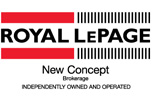
We have all experienced difficult times due to the unforeseen Covid-19 pandemic for a long time. We hope that this year we can achieve complete recovery in all aspects.
*** Due to the significantly increased mortgage interest rates in the past year, many families who received pre-construction condominium are considering assignment sale before moving in or registering.
However, there has been a lot of misinformation about the assignment sale process, including taxes and expenses, on online platforms such as YouTube. We want to provide accurate information below for your reference.
*** Two major pieces of misinformation:
1. When the seller sells the property, they have to pay HST on the entire assignment sale value: False.
2. When the seller sells the property, they have to pay HST on the difference between the assignment sale value and the deposit amount (usually 15-20% of the pre-construction condominium sale price): False.
*** Costs for the seller in the assignment sale process:
1. HST (13%) on the difference in the assignment sale value (the Canada Revenue Agency allows for HST reductions if the assignment sale is deemed necessary)
2. Income tax on the amount obtained from the difference in the assignment sale value after deducting additional expenses, such as the assignment sale commission, real estate brokerage fees, lawyer fees, etc. (taxes are paid on the amount combined with personal income for that year).
*** For example:
- If you received a pre-construction condominium for $600,000 and sell it for $700,000 as an assignment sale:
1. HST (13%) on the difference of $100,000: $13,000
2. Additional expenses such as the assignment sale commission, real estate brokerage fees, lawyer fees, etc., totaling $40,000, and personal income for that year is $80,000.
** $100,000 – $40,000 + $80,000 = $140,000
Therefore, when you report your income for that year, you need to report $140,000 instead of $80,000 and pay income tax based on the amount (final tax rates should be confirmed with an accountant).
*** What the buyer should consider when purchasing in assignment sale:
1. Since it is usually not possible to judge the interior of a condo by directly seeing it before buying (you can see the interior after moving in), you should review the floor plan and understand the interior structure, fragrance, view, etc. and also visit the site to confirm transportation and nearby facilities.
2. Review the original pre-construction condominium sale contract, amendment, and incentive, pre-emptive agreement, rent after occupancy conditions, development charge cap, etc. through a lawyer.
3. Check the completion of the mid-term payment through a review of the Evidence of Compliance documents.
4. If the interior selection is completed, check the type and color of the materials, whether there are any upgrades, and whether the upgrade costs have been paid.
5. If you decide to rent the property after buying it, an additional $24,000 must be paid at the closing (which can be refunded after the lease ends), so you should review and confirm the final closing costs.
*** There are advantages and disadvantages to both the seller and buyer in a assignment sale transaction. For the seller, there are benefits such as profit from the assignment sale margin and elimination of expenses, while for the buyer, there is the advantage of being able to purchase a desired unit in a new condo at a cheaper price than market value at a desired time.
Both parties need to consider the advantages and disadvantages from their own perspective before making a decision.
*** In particular, assignment sale transactions cannot usually be advertised on MLS, so a system and network for advertising is important for successful sales.
We hope to provide a good sales outcome by utilizing the system and network of My Best Home.
Sales Representative
1-416-554-8949
Website: www.torontoprecondo.ca
Email: ian@torontoprecondo.ca


